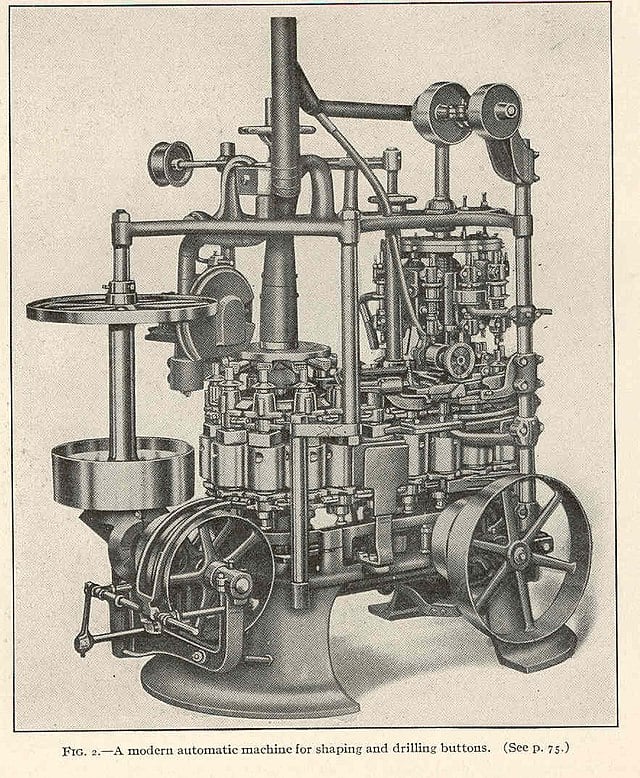Email, as far as im aware there isn’t some alternative email standard (messaging services, whatsapp, signal, sms, etc do not count imo as I believe they serve a different purpose than email)
DNS, while there are alternative root servers, they still fundamentally rely on the dns protocol.
TCP/IP, when the internet was first starting, this was not the only standard in use, but now it is (to my knowledge).
I thought about this for longer than I should’ve for a comment on a random post, but this is all I could think of lol.
edit: grammar
TCP/IP isnt the only standard in use even today. UDP/IP is the other big one and there’s a few smaller protocols hanging around like utp.
Ah, I shouldve been more clear. I didnt just mean tcp specifically, I meant IP as a whole, for an example of a competing standard see x.25.
Funny enough, that wikipedia article mentions that x.25 is still in use by the aviation industry, and after a quick search it seems it is! So I guess Im still wrong lol.
You can probably throw Ethernet in there as well then, unless there’s anyone out there rocking a Lemmy instance on token ring…
I remember token ring settings in our family Mac in the early 90s. We eventually got broadband and my carpenter dad wired the house for Ethernet in around 98. He was cool dad at the time and way more tech savvy than anyone expected.
Ipv4 vs ipv6 🫠
fair enough!
TCP/IP is not the same as TCP, and UDP/IP doesn’t exist
Wat.
Lol. Dont waste peoples time in the future thanks!
You’re saying I’m wrong?
We also have I2P now.
that’s a different layer, it’s not transport but a network protocol. it “competes” with IP
Dont think we need to make that distinction here. :) correct of course but ip vs i2p, tcp vs udp vs utp, etc are all different layers of the same domain.
!! i was not aware of I2P. what a wonderful network.
USB has worked pretty well IMO
Yeah just don’t pay too close attention to the unofficial power delivery protocols.
or the cursed double ended USB-A cables
My main complaint about USB is the cables. There’s no way of knowing what standards and data speeds the cable may support.
They’ve not at least released a standard set of markings. Basically, the data speed in Gb and the power capacity in Watts will be printed on the connector. Whether chinese suppliers will bother complying is another matter.
Your typo makes your comment really confusing because it means the opposite of what you meant to write.
“looks inside” meme with the “oh. oh no” meme spliced onto the end
USB , mini USB, type C USB, iphone bs, do those not count?
Toilet paper rolls.
Somehow we settled on a pretty good size for toilet rolls, and there never seems to be a compatibility issue with holders.
At least not for households. Commercial products have their own things going on, but it doesn’t affect most people.
Is there a formal standard, or did we decide not to mess with good enough?
We’ve got a 100 year old toilet roll holder, the spindle was turned on a lathe and the wooden cutout it sits in was hand carved. It is a poor fit for modern high sheet count rolls. We can’t stand to get rid of it so we just leave the roll outside of it until it is small enough to fit.
I have a half-bath with a modern holder. When that roll is 75% consumed, I move it to the bathrooms with the older style.
What’s the width like? Consistent with modern rolls, or no?
Correct, width is the same. It can’t handle the diameter of modern jumbo rolls.
This is a cool one I haven’t thought of before!
The way I see it, it’s not so much an issue of making something that’s better than the other standards. It’s really about getting your standard into actual use and hitting critical mass which makes all the other standards irrelevant.
see also: NACS (yep that’s a Tesla plug in a standards agreement)
Yeah. No standard covers all use cases. It’s just best to have one standard that makes a lot of compromises.
When the standard is a big interoperability push that leverages MORE functionality as a bribe to be implemented.
This is how USB (plug & play!), Bluetooth (wireless headset!), HDMI (high def, single cable!) , and USB-C (both sides are good!) all beat the entrenched pseudo standards.
You can avoid the issue when a government just mandates one standard, ideally after consulting with experts on which is the best.
See: USB, SCART, etc.A lot of people seem to be opposed to this argument, seeing it as a kind of government overreach, but I think it can work if done correctly. Things like USB and HDMI are already governed by collectives of companies, I think having the government work together with them can be beneficial for both consumers and producers alike.
Sometimes the regulators sit back and see how the market is pushing, then regulate it to reduce waste. EV chargers for example.
obligatory DisplayPort > HDMI
USB-C is a total failure though. Switching voltages, extremely high currents, expensive cables, fickle connectors, …
non standard conforming cables, and connectors, plus the entire mess of it supporting anything from power only, to usb 2, to usb 3, to thunderbolt 3, to thunderbolt 4? and usb 4.0 now.
It’s an utter fucking disaster of a shithole.
I see this one quoted a lot when discussing Lemmy communities migration/consolidation/split.
I don’t think it really works that well for forums. Some communities have clearly taken over others (see [email protected] vs [email protected] recently). It’s not standards competing, it’s people going where the activity happens.
For home automation, Matter/Thread has the potential. We’ll see over the next five years, but yes market forces can make a new standard work
Reasons I’m hopeful
- this is the first time major companies are involved: Apple, Google, Amazon agree
- first time home automation hubs “just happen”, with the millions of people who have Echo, Google Home, Apple devices
- small companies that dominate home automation seem to realize the problem of the market can’t reasonably expand without interoperability and ease of use
Matter/Thread is the new kid on the block. Will it be yet another home automation standard, or will it gradually replace the previous ones? We’ll see.
My guess is that the speed with which new device types are supported is too slow to make it truly revolutionary. It was a good idea, it just does not happen fast enough to become dominant.
Definitely a problem - but the positive side of that is the slow pace is from reaching a consensus. It’s easy to be impatient with how slow the rollout is going but if that means that most manufacturers of each type are on board it could still be a good thing
The only place I have seen thread mentioned before was this blog post: https://overengineer.dev/blog/2024/05/10/thread/
If you’ve seen anything about Matter, it most likely talks about Thread as well. They usually go together
Yes, its not about matter at all.
Networking standards started picking winners during the PC revolution of the 80’s and 90’s. Ethernet, with the first standards announced in 1983, ended up beating out pretty much other LAN standard at the physical layer (physical plugs, voltages and other ways of indicating signals) and the data link layer (the structure of a MAC address or an Ethernet frame). And this series of standards been improved many times over, with meta standards about how to deal with so many generations of standards through autonegotiation and backwards compatibility.
We generally expect Ethernet to just work, at the highest speeds the hardware is capable of supporting.
networking standards were a mess before ethernet really fucking cooked with twisted pair wiring.
Ethernet had already existed for a little bit prior to this, and most other alternatives were actively being worked on at the time, and relatively similar to ethernet, save for the general technical implementation, token ring as opposed to the funny broadcast meta. But when ethernet was able to just barely get ahead and use twisted pair, the entire thing came crumbling down and everyone agreed that ethernet over twisted pair, with switched star topology was the best.
Chess, there’s so many wonderful ways to play.
Also, playing cards. Every casino and basement house party uses the same 52 card deck. It’s sold in airports all over the world.
Systemd
emacs is everything
Surprised I haven’t seen anyone here mention unicode
Probably because utf-8 vs utf-16 vs utf-32 makes people feel like it is still annoying multi-standard.
Not exactly this, but it reminds me of my first job. I used to work in finance, and I was given the task of automating cash flow reports that were sent out to hundreds of clients.
The problem was that they were made manually in Excel, and most of them were unique. So every couple years they’d get a bunch of smart people in a conference room, and tell them to figure out how to automate the cash flows. The first step was always to create a standard cash flow template, and convince everyone to adopt it.
Some users would adopt the new template, but most of them would say that the client didn’t like it, so they’d stop using it and the project would fall apart.
By the time I got there, there were still hundreds of unique cash flows, but then there were a few dozen that shared the same handful of templates, like a graveyard of failed attempts to automate this process.
I just made the output customizable. The reports looked the same as what the client was used to, but it saved hundreds of man hours for the users. A lot of people got laid off.
Whenever the new standard hits the almost impossible golden triangle of “cheap, reliable, and fast”.
It’s gotta be cheaper than the alternatives, better and more reliable than the alternatives, and faster/easier to adopt than the alternatives.
Early computers for example had various ways to chug math, such as mechanical setups, relays, vacuum tube’s, etc.
When Bell invented their MOSFET transistor and figured out how to scale production, all those previous methods became obsolete for computers because transistors were now cheaper, more reliable, and faster to adopt than their predecessors.
Tbf though transistors are more of a hardware thing. A better example of a standard would be RIP being superceded by BGP on the internet.
Tbf though transistors are more of a hardware thing. A better example of a standard would be RIP being superceded by BGP on the internet.
another big example is the telecom companies being superseded by IP based networking, rather than whatever patch routing bullshit was previously cooked up.
Sometimes certain solutions are just, better.













